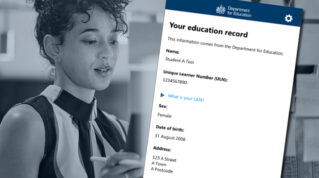Ministers are considering ditching a league table metric introduced by Michael Gove that measures school performance based on how many students go on to study at Russell Group universities.
The controversial measure was first introduced in 2012, alongside a metric showing how many pupils get into Oxford of Cambridge.
This was to give parents “even greater information” to choose the “right school or college” for their child.
But a House of Lords committee report into secondary education this week called for this to be adjusted or ditched to ensure “performance incentives” are “coherent” across key stages 4 and 5.

The committee had heard the measure was driving schools to disincentivise pupils from taking technical or vocational courses. The Russell Group includes 24 self-selecting “elite” universities.
The Department for Education said the term Russell Group was used because it is “generally understood as a reference to high-tariff universities”.
But it is now reviewing whether it is “still required”.
One of the main reasons is because the government also reports the proportion of students progressing to the top third of universities, measured by the high grades of their intake.
‘Odd thing to do in public policy’
Welcoming the review, Mary Curnock Cook, former UCAS chief executive, said a “clustering of applications to Russell Group universities means disappointment for too many university applicants who think that ‘Russell Group’ is a quality kitemark rather than a mission group”.
Nick Hillman, director at think tank Higher Education Policy Institute, added measuring schools by how many pupils got into a self-selecting group of universities was “quite an odd thing to do in public policy”.
He said school prospectuses often report how many students go onto Russell Group universities.
While removing the measure would not prevent this, schools are likely “doing it because schools are influenced by government policy”.
“It would send a signal to schools about what people in power most value,” he added.
The latest DfE data for 18-year-olds, from 2019-20, showed 17.7 per cent progressed to a Russell Group university.
‘Quite elitist’
Andrew O’Neill, headteacher at All Saints Catholic College in west London, said the measure “seems quite elitist – it’s not very fair. It’s like having a Premier League where no one can get relegated or promoted to.”
Daniel Kebede, general secretary at National Education Union, added the current performance measures “are inspired by the Conservative imaginations of Michael Gove and Nick Gibb, not by serious thought about how a broad and inclusive school experience can be encouraged”.
In 2013, the Times Higher Education newspaper reported how Gove’s former top civil servant had called the decision to publish Russell Group data “narrow and naïve”.
Sir David Bell, who served as DfE permanent secretary until 2012, said at the time: “I don’t think [the data] serve the cause of opening up higher education to a wider group of students.
“Not every student will want to follow a course in a Russell Group university, and not every Russell Group university offers excellent courses across all its suite of subjects.”
Bell, also a former chief inspector at Ofsted, is now leading a review of early years education for the Labour Party.
The Russell Group declined to comment.
In May 2019, the Russell Group scrapped its use a list of so-called “facilitating subjects”, which included the EBacc subjects of maths, English, the sciences, languages, history and geography.
It followed criticism that top universities don’t place enough weight on arts or technical subjects.
As a result, the government ditched a statement on its website stating that the country’s top universities believe the EBacc subjects “open more doors to more degrees”.
















Your thoughts